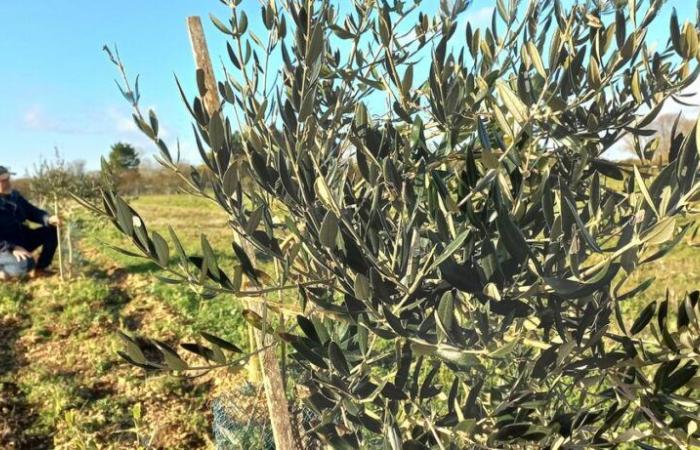LWill Charente-Maritime one day take on the appearance of Provence or Spain with fields of olive trees in bloom in spring? Ongoing climate change, with rising average temperatures, may suggest this. And the fact is that following the example of their colleagues from Gironde, for New Aquitaine, more and more farmers are interested in the production of a fruit rich in lipids often associated, in the spirit of consumer, in the Mediterranean climate.
“Last year, I received around fifteen calls for projects or information, including two or three requests from Charente but bordering the department,” explains Julia Crombez, arboriculture advisor at the Chamber of Commerce. agriculture of Charente-Maritime and Deux-Sèvres. They are most often wine growers, market gardeners and cereal growers who want to plant olive trees, or have just done so, to diversify or replace a production. »
The urgency of dealing with the wine crisis in the Bordeaux region has given the Gironde Chamber of Agriculture a head start in the region. Technicians have been trained in the subtleties of the cultivated olive tree. Since 2023, they have been happy to welcome people from Charentais-Maritimes for two-day courses on the technical and economic bases of olive growing. But last year, a first meeting was held in Saintes, around the arrival of a councilor from Var. A sign of taking into account local expectations.
A farmer open to new practices and cultures in Dompierre-sur-Mer, Eric Boulerne was there. In 2021, the operator of the Moinerie farm began planting olive trees on a 7.5 hectare plot previously dedicated to aromatic plants in organic farming. Today, 6.5 hectares are planted, with different French and Spanish varieties, and “if we need to go to 20 or 30 more hectares, it is possible”. The first harvest, on approximately 200 feet, will only take place in two years. So for now, “it’s still an experiment and I’m learning.”
Beware of humidity
Some basic data is encouraging. First, a level of sunshine in the La Rochelle region close, statistically, to those of Toulon and Montpellier, in a general context of increase in average temperatures. Then, the mild oceanic climate which limits the risk of severe frosts. Finally, the presence of a filtering soil, rather calcareous. “Olive trees don’t like having their roots in stagnant water. »
-Regular rains prevent watering. But too much rain, as may have been the case in 2024, promotes diseases on a tree suitable for organic production because it usually requires little treatment. In terms of humidity, fog constitutes another danger. In spring, it actually slows down pollination by the wind. However, it appears to the farmer that fog is creeping into the landscape more and more often.
Which varieties to favor (arbequine, arbosane, aglandau, bouteillan, etc.)? Should we cultivate as in Provence, with well-spaced trees, or create more productive fruit hedges where picking can be done mechanized? Many questions arise far north of the usual production area. With harvest forecasts difficult to establish, therefore.
The beginnings of a sector
Arthur Constancin, creator of L'Oliv'Ré in 2020, experiences it. The young man, who today has 5 hectares in Sainte-Marie-de-Ré, La Flotte and Le Bois-Plage, for a dozen different varieties, made his first harvest last fall. He does not specify the result. But “with the torrential rains that we had during the year, it's a little less than what I hoped…” The olives are being preserved or processed (oil and tapenade), in association with those of the La Niña estate he owns in the Spanish Pyrenees.
Pioneers cleared the land in the 2000s and 2010s, including Pascal Lemoine in Loix and Marie-Madeleine Giribaldi in Saint-Sorlin-de-Conac. And for three years, “around ten farmers have planted”, notes Julia Crombez for the Chamber of Agriculture. Charente-Maritime is thus beginning to acquire the culture of olive growing, and the beginnings of a regional sector are appearing. An association for the promotion and professionalization of the cultivation and processing of olives called Oléiculteurs Nouvelle-Aquitaine was created, in Gironde, in August 2024.




